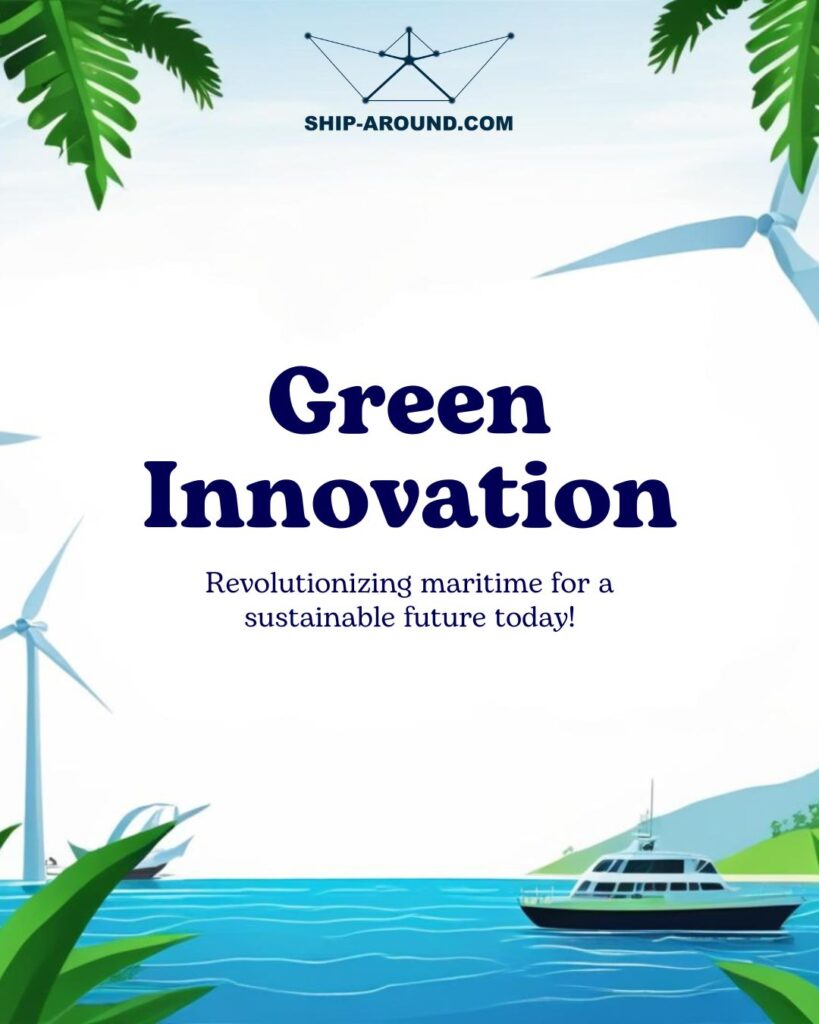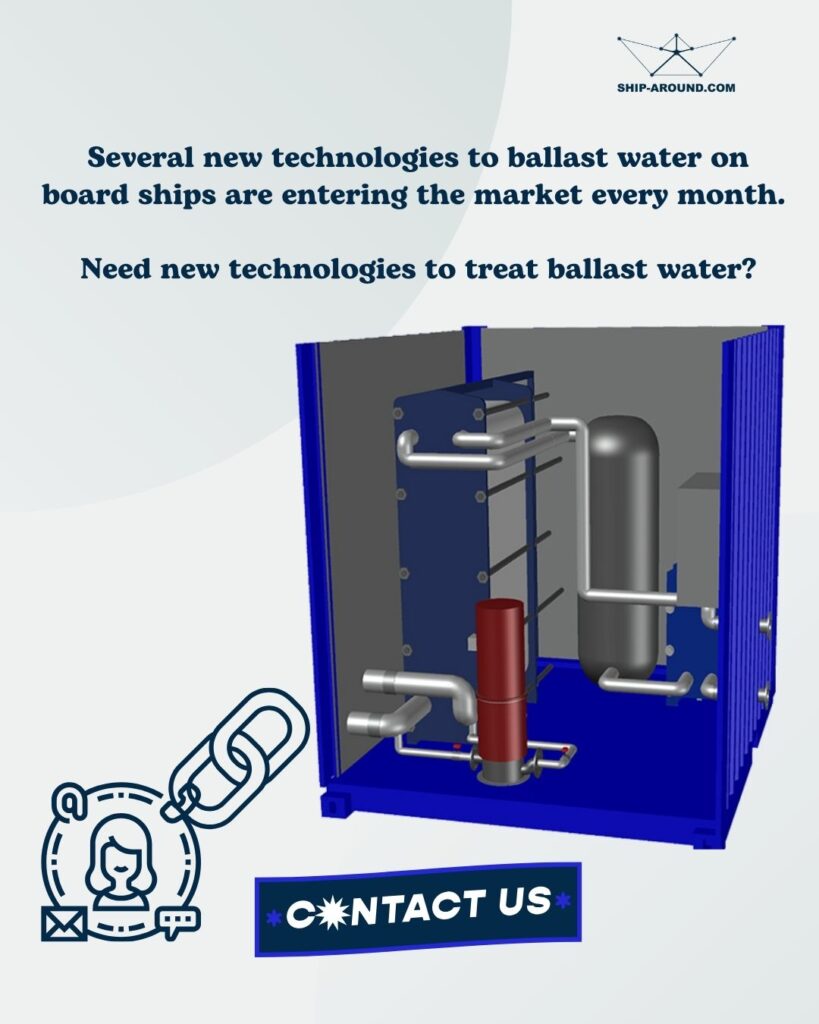The maritime industry is undergoing a green innovations and transformation, driven by stricter environmental regulations and the urgent need to reduce carbon footprints. From low-emission engines to energy-efficient lighting and corrosion-resistant materials, these innovations are shaping the future of sustainable shipping.
The most impactful green technologies revolutionizing maritime equipment today includes:
1. Green Innovation using Low-Emission & Alternative Fuel Engines.
Traditional marine engines rely heavily on fossil fuels, contributing to significant CO₂ and NOx emissions. However, next-generation engines are changing the game by integrating:
–LNG-Powered Engines
Liquefied Natural Gas (LNG) significantly reduces SOx (Sulfur Oxides) by nearly 100% and CO₂ emissions by 20% compared to conventional diesel. Companies like Wärtsilä and MAN Energy Solutions are leading the way in developing dual-fuel engines that run on both LNG and diesel.
–Hydrogen Fuel Cells
Hydrogen-powered vessels produce zero emissions, using fuel cells to generate clean energy. Maersk and CMB.TECH are pioneering this space with hydrogen-powered container ships and ferries.
–Ammonia & Methanol Fuels
Ammonia is another promising fuel alternative that emits no carbon when burned. Companies like MAN Energy Solutions are testing ammonia-powered marine engines to create a more sustainable shipping industry.

2. Energy-Efficient Maritime Lighting.
Ship lighting consumes a large amount of energy, but switching to LED and smart lighting systems drastically reduces power consumption.
–LED Lighting
- Uses up to 80% less energy than traditional halogen or incandescent bulbs.
- Longer lifespan = lower maintenance costs and fewer replacements.
- Improves visibility and safety on ships.
–Solar-Powered Lighting
Some ships and ports are now installing solar-powered navigation lights to minimize reliance on non-renewable energy sources. This trend is especially beneficial for offshore platforms and remote marine stations.
-Intelligent Lighting Control Systems
Smart systems automatically adjust brightness based on activity levels, reducing waste and optimizing energy use in cabins, decks, and work areas.
3. Corrosion-Resistant & Sustainable Materials.
Saltwater, humidity, and harsh marine conditions cause corrosion, leading to frequent repairs and material waste. Green innovations in shipbuilding materials are extending the lifespan of maritime equipment while reducing environmental impact.
–Eco-Friendly Coatings & Paints
Traditional anti-fouling coatings contain harmful chemicals, but new alternatives like silicone-based, biocide-free coatings are:
- Non-toxic to marine life.
- More durable, requiring less frequent reapplication.
- Reducing fuel consumption by preventing hull fouling and drag.
–Lightweight Composite Materials
Replacing heavy steel with lightweight composites reduces fuel consumption and emissions. Carbon fiber and fiber-reinforced plastics are increasingly used in hulls, superstructures, and cargo containers to improve efficiency.
–Recycled & Bio-Based Materials
Shipbuilders are exploring recyclable materials and bio-based polymers to replace traditional fiberglass and plastics, lowering the environmental impact of ship construction.
4. Green Innovation for Smart Energy Management & Waste Reduction.
Advanced digital solutions are helping maritime companies optimize energy use and minimize waste.
–AI-Powered Energy Management Systems
Using Artificial Intelligence (AI) and IoT sensors, ships can track fuel efficiency, monitor emissions, and optimize energy consumption in real time.
–Ballast Water Treatment Systems
Regulations like the IMO Ballast Water Management Convention require ships to treat ballast water to prevent the spread of invasive marine species. New UV and filtration-based treatment systems are replacing harmful chemical-based solutions.

–Zero-Waste & Circular Economy Initiatives
- Ship recycling programs are ensuring old ships are dismantled responsibly instead of being abandoned at sea.
- Water purification and filtration onboard reduces plastic bottle waste by providing clean drinking water for crews.
The Future of Green Maritime Innovations.
With increasing environmental regulations like IMO 2030 and IMO 2050, green innovations and maritime technologies are no longer optional—they are essential. Companies that adopt these sustainable solutions will benefit from lower operational costs, reduced emissions, and improved efficiency while complying with global environmental standards.
Why It Matters for Your Fleet:
- Lower fuel costs with efficient engines.
- Reduce maintenance expenses with corrosion-resistant materials.
- Extend equipment lifespan with sustainable solutions.
- Comply with environmental laws while enhancing brand reputation.
At Ship Around, we provide access to the latest eco-friendly maritime equipment to help your fleet stay ahead of industry regulations and sustainability trends.
The maritime industry is setting sail toward a greener future with groundbreaking sustainable innovations. By adopting green innovations and sustainability via low-emission engines, energy-saving lighting, and advanced materials, ships can significantly reduce their carbon footprint while improving performance.
What are your thoughts on these green maritime innovations? Are you ready to upgrade your fleet?

